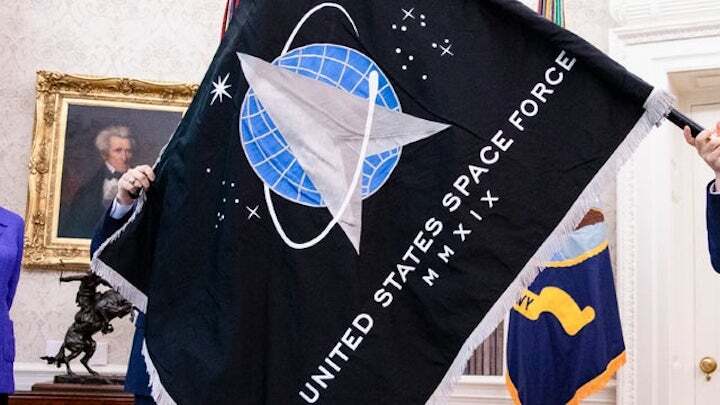15.02.2022

Nothing quite illustrates how the Space Force — that new branch of military service created by former President Trump and continued under President Joe Biden — is still struggling for respect than a recent story from Military.com. It seems that a Space Force captain was initially denied a military discount for active-duty service members offered by Spirit Airlines because the clerk at the ticket counter did not believe that the Space Force is an actual military service branch.
Only after a supervisor was summoned did the captain and his wife receive the discount and were allowed to board their flight. A few days later the officer received an email apology from Spirit Airlines. However, the incident illustrates that even entering its third year of existence, the Space Force is having trouble getting acceptance and even recognition from the public.
Part of the problem is that, while the Space Force is engaged in an important mission regarding the operation and defense of America’s space assets, none of it is considered newsworthy. Recently the Space Force launched a pair of satellites designed to inspect other satellites in geostationary orbit, an important step for developing situational awareness in space. But that mission pales in comparison to, say, the recent raid that resulted in the death of the head of ISIS.
In the meantime, Russia recently tested a space weapon that created a debris field that endangered the International Space Station (ISS), ironically a project Moscow participates in. Also, China has tested a spacecraft capable of moving satellites, a great capability for space debris removal but also for sending enemy operational satellites crashing into the atmosphere. The Space Force has just started a program called Orbital Prime that would develop space debris removal and recycling, though perhaps with a space warfare dual purpose.
Satellites are also vulnerable to cyberattacks. With this fact in mind, the Space Force is soliciting industry for ideas for defending America’s space assets from cyber-war interference. “The Space Force is especially interested in technologies to autonomously defend network such as artificial intelligence systems that can detect and identify intruders,” according to Space News.
Retired Air Force General Kevin Chilton has proposed that the Space Force be empowered to do more to defend America’s space assets and to place those of its enemies at risk. He also proposes that the new service branch be tasked with support from other branches of the military, mainly by providing real-time, near-instantaneous reconnaissance of the battle spaces that the Army, Navy, Air Force and Marine Corps operate in.
Chilton, who was not only a NASA astronaut but also commanded the Air Force’s Space Command, suggests that Space Force Guardians need the same sort of training that members of the other service branches engage in. “This means test and training ranges, along with advanced simulators that will ensure their readiness to decisively defeat our adversaries. The first time they encounter an enemy-driven challenge should not be in real life but in high-fidelity simulation and exercise against an aggressor force trained and equipped to emulate adversarial threats, as we do in Red Flag, Top Gun and the National Training Center exercises,” he wrote recently.
Chilton’s suggestions would transform the Space Force from an esoteric organization that many people have never heard of into a true, war-fighting military service branch. However, the Space Force has one more potential role to play, something that might wind up saving the world.
The development of hypersonic vehicles by both Russia and China that can evade missile defense systems and attack a target from any direction has become a matter of great concern to American military planners. The Space Force could play a role in thwarting such attacks, perhaps by developing space-based boost phase systems, an idea that dates back to the 1980s-era Strategic Defense Initiative proposal. Such a system could also help to ward off attacks from rogue countries such as North Korea and Iran.
Imagine a future headline: Space Force Shoots Down Nuclear Missile Launched from North Korea: Millions of Lives Saved.
In such an event, Space Force Guardians will no longer have to worry about being dissed by clerks at airport ticket counters. One suspects that they will no longer be able to buy their own drinks ever again. Lifting the renewed threat of nuclear destruction would make all the controversy surrounding the Space Force worth it.
Quelle: The Hill

